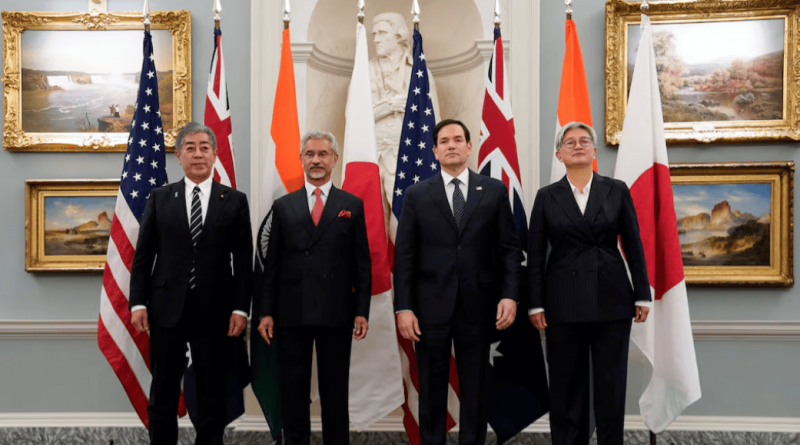Quad Foreign Ministers Condemn Kashmir Militant Attack, Urge Justice
Washington — The Quad alliance — comprising the United States, India, Japan, and Australia — issued a powerful joint statement on Tuesday condemning the April 22 terrorist attack in India-administered Kashmir, which claimed the lives of 26 people. The group called for the perpetrators, organizers, and financiers of the attack to be brought to justice “without delay.”
The coordinated assault, attributed by India to Pakistan-based Islamist militants, triggered a dangerous escalation between the two nuclear-armed neighbors, prompting fears of broader conflict in South Asia. Pakistan has denied any involvement, urging an independent international investigation instead.
The statement, issued by the U.S. State Department following a Quad foreign ministers’ meeting in Washington, stopped short of naming Pakistan directly. However, it delivered an unambiguous message about the threat posed by cross-border terrorism.
“The Quad unequivocally condemns all acts of terrorism and violent extremism in all its forms and manifestations, including cross-border terrorism,” the ministers declared.
They also urged all United Nations member states to cooperate with authorities to ensure justice is served.
Strategic Implications and Regional Tensions
India is a key pillar of Washington’s Indo-Pacific strategy, increasingly seen as a counterbalance to China’s growing regional assertiveness. Conversely, Pakistan remains a long-time U.S. ally, creating diplomatic sensitivities when regional violence occurs.
Following the April attack, New Delhi launched airstrikes on targets across the Line of Control on May 7, which it described as “terrorist infrastructure.” This led to retaliatory strikes by Pakistan involving jets, drones, missiles, and artillery, killing dozens and raising fears of a wider conflict.
A ceasefire was eventually declared on May 10, after the United States held backchannel talks with both countries. U.S. President Donald Trump claimed credit for brokering the truce, citing threats to sever trade discussions. However, India has publicly distanced itself from Trump’s version of events.
India maintains that the resolution was achieved bilaterally with Pakistan, independent of third-party pressure.
India’s Diplomatic Position: No External Mediation
On Monday, Indian External Affairs Minister Subrahmanyam Jaishankar reiterated New Delhi’s longstanding position that its disputes with Islamabad must be resolved directly.
“Relationships will never be free of issues,” Jaishankar said, referencing U.S.-India ties. “What matters is the ability to deal with it and to keep that trend going in the positive direction.”
India’s refusal to acknowledge foreign mediation underscores its emphasis on strategic autonomy, even as it aligns more closely with Western partners like the U.S., Japan, and Australia through the Quad.
A Test for the Quad’s Resolve
The Kashmir incident and its aftermath present a crucial test for the Quad, which has positioned itself as a stabilizing force in the Indo-Pacific.
The group’s commitment to counterterrorism, sovereignty, and rule of law has gained momentum in recent years. However, balancing such principles with the realpolitik of regional alliances remains a complex challenge.
With terrorism continuing to serve as a destabilizing instrument in South Asia, the Quad’s latest statement signals a unified front — albeit with measured diplomatic language — against those seeking to exploit regional fault lines.



